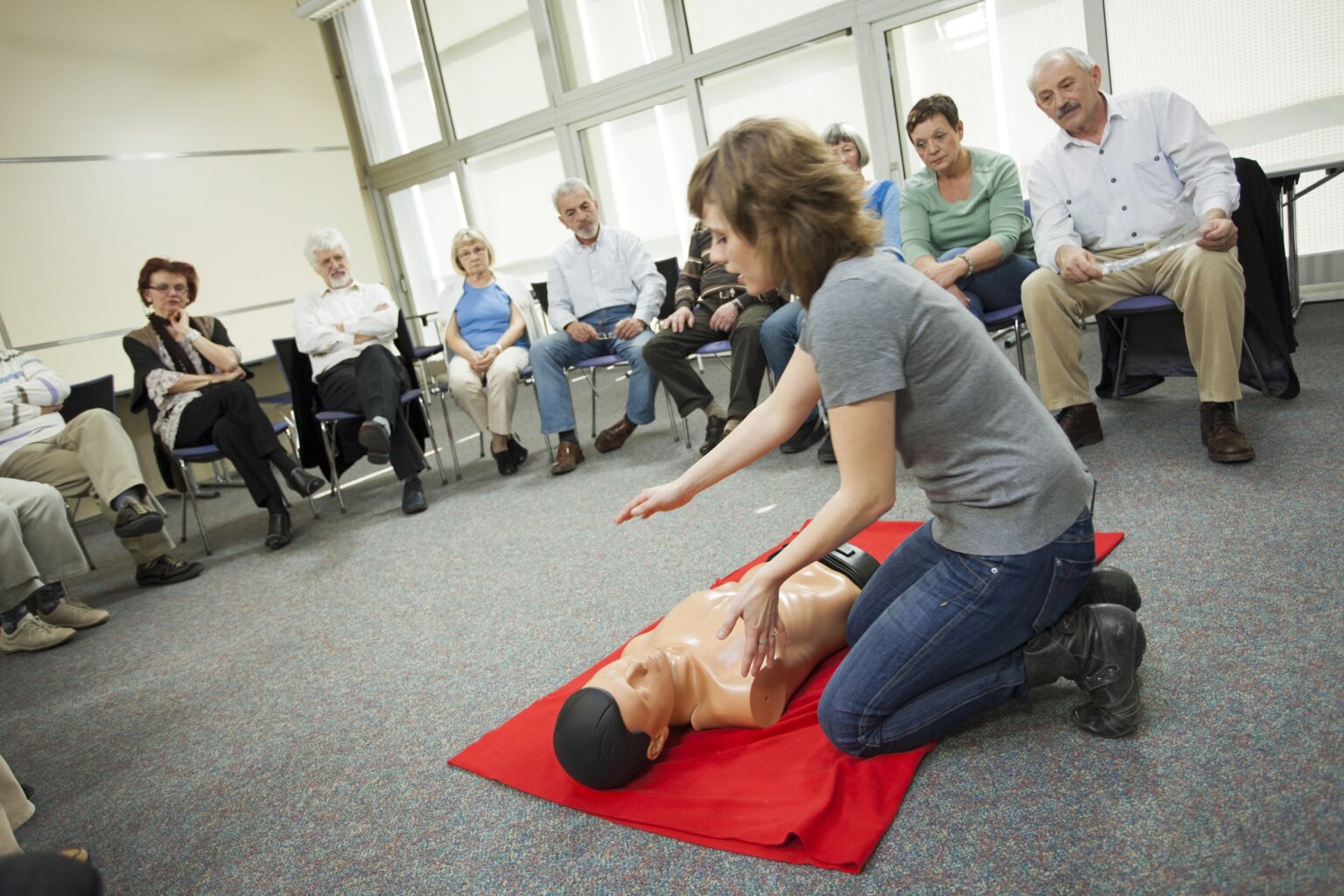American Heart Association© Group CPR Discount Classes in San Jose

About Group Classes
Safety Training Seminars can come out to your place of business at any time on any day of the week to conduct BLS, CPR, and First-aid training courses. Our friendly instructors arrive on time, and bring out all the necessary supplies and equipment to conduct a fun and informative safety training course.
Alternative: If organizing a class at your location is complicated, you can send your staff out to take classes at one of our 57 offices located throughout Northern California.
Ask about Promo Code discounts.
More Information About Group Classes
Group CPR Training Classes in San Jose: Empowering Communities Through Lifesaving Skills
Cardiopulmonary resuscitation (CPR) is a critical lifesaving skill that can make a significant difference in emergencies such as cardiac arrest, drowning, or choking. In San Jose, California, group CPR training classes offer community members the opportunity to learn and practice these essential skills in a supportive environment. This article explores the importance of group CPR training, the benefits of learning in a group setting, and the impact these classes have on individuals and communities in San Jose.
The Importance of Group CPR Training
Cardiac arrest can happen to anyone, anywhere, at any time. In fact, about 350,000 cardiac arrests occur outside of hospitals each year in the United States. Immediate CPR can double or triple a person’s chance of survival, but only about 46% of people who experience cardiac arrest outside of a hospital receive bystander CPR. Group CPR training aims to increase the number of people who are prepared to respond effectively in such emergencies, ultimately saving more lives.
Benefits of Learning in a Group Setting
Group CPR training offers several advantages over individual training. One of the key benefits is the opportunity for participants to practice CPR techniques on manikins under the guidance of certified instructors. This hands-on practice helps build confidence and ensures that participants are performing CPR correctly.
Additionally, group training allows participants to learn from each other’s experiences and ask questions in a supportive environment. This collaborative learning approach can enhance retention and understanding of the material.
Impact on Individuals and Communities
Group CPR training has a profound impact on individuals and communities in San Jose. By learning CPR, participants gain the skills and confidence to take action in emergencies, potentially saving the lives of loved ones, colleagues, or strangers. This sense of empowerment can have a ripple effect, inspiring others to learn CPR and creating a community of lifesavers.
Furthermore, group CPR training helps build a more resilient community by increasing the number of people who are prepared to respond to emergencies. In the event of a cardiac arrest or other life-threatening event, the quick actions of trained bystanders can make all the difference in the outcome.
Conclusion
Group CPR training classes in San Jose play a vital role in empowering individuals and communities to respond effectively to emergencies. By providing hands-on training, valuable knowledge, and a supportive learning environment, these classes equip participants with the skills they need to save lives. Through education, collaboration, and a commitment to safety, group CPR training is making San Jose a safer place for everyone.
FAQs
Who should attend group CPR training classes in San Jose?
Group CPR training classes are suitable for anyone interested in learning life-saving skills, including parents, teachers, caregivers, healthcare professionals, and members of the general public.
How long do group CPR training classes typically last?
Group CPR training classes usually span a few hours, depending on the training provider and the depth of instruction. Classes typically include a combination of theoretical instruction, hands-on practice, and skill demonstrations.
Is there a renewal requirement for group CPR training certification?
Yes, CPR certifications are typically valid for two years, after which individuals are required to undergo renewal courses to maintain their certification. Renewal courses often include updates on guidelines and protocols, as well as opportunities to refresh and practice essential skills. Renewing CPR certification ensures that individuals stay current with the latest best practices in CPR and are prepared to respond confidently to emergencies.

